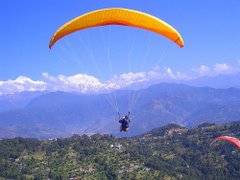 NEPAL: Girls not spared by violence in Terai
NEPAL: Girls not spared by violence in Terai RAUTAHAT, 29 March 2007 (IRIN) - In the remote Pathaya village of Rautahat district, some 200km southeast of the Nepalese capital, Kathmandu, local women are coming to terms with seeing three young girls killed in recent clashes between supporters of the ethnic Madhesi party and former Maoist rebels.
“There have been sleepless nights for every witness and yet they could do nothing to save these girls from their perpetrators,” said women’s rights activist Shobha Gautam, who had travelled to the area to report on the incident. “This was a crime against humanity. I’m still too shocked to recount the details.”
Rights groups say Saraswati Upreti, Pratima Pariyar and Usha Thapa - all aged between 16 and 18 years old and Maoist sympathisers - were killed by supporters of the Madhesi People’s Rights Forum (MPRF) on 21 March.
The girls were dragged to a local Hindu temple in Rautahat where they were raped, tortured, had their breasts cut off and their heads crushed with rocks in front of hundreds of people in broad daylight. “Why is there so much hatred? Why is it always helpless women who have to suffer the most?” cried a local female villager who declined to reveal her name for fear that she would be killed for sharing any information about the incident. No villager in Pathaya was willing to say anything about the incident as they too feared for their lives.
Hundreds of villagers have reportedly left their homes in Pathaya and neighbouring villages fearing recurring violence.
The MPRF has been organising protests for the past three months, demanding autonomy for the Madhesi people in the southern Terai region. During the protests, some MPRF protesters have targeted Pahadis, Nepalese hill people who make up the majority of Maoist supporters in the region. NGOs have expressed concern that the deteriorating security in the Terai is affecting the most vulnerable and that the recent killing of three girls will lead to more violence against women. The fact that most local Terai men live and work in India, trying to provide for their families, makes the many women living alone with their children feel more insecure.
“The Terai violence has so much impact on women. This incident has stirred so much fear of insecurity among women across the nation, mostly in the Terai region, where there is no sign of violence stopping now,” said Devkumari Mahara, an activist with the Women’s Rehabilitation Centre (WOREC), a national NGO focussing on the protection of women.
Mahara added that women’s rights activists were also at risk. “We often get attacked and abused, even as women’s rights defenders. You can imagine the vulnerability of ordinary women,” she said. Kamala Rai, an activist who works in Dhanusa, one of the most volatile districts of the Terai, said that incidents of rape and abuse could be on the rise amid escalating violence. But most of them would go unreported as the victims would not be willing to report the cases to the police, whom they do not trust, she said. “Can you believe that a 72-year-old woman was recently raped many times? But the rapists managed to get away as the security system of the country has totally failed,” Rai said.
Source: IRIN Asia

No comments:
Post a Comment